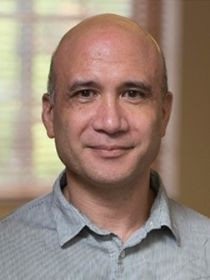
Bruce Western
Bryce Professor of Sociology and Social Justice; and Co-Director of the Justice Lab, Columbia University
Chapter Member: New York City SSN
Areas of Expertise:
Connect with Bruce
About Bruce
Western is interested in how economic life has changed for low-income and working families over the last thirty years, and how government policy – particularly in the fields of criminal justice and the labor market – has influenced those changes. He has testified on mass incarceration before the U.S. Congress Joint Economic Committee, proposed a National Prisoner Reentry Policy, served on the National Research Council’s Panel to Review the Bureau of Justice Statistics, and chaired the American Academy of Arts and Sciences’ Task Force on “The Challenge of Mass Incarceration.”
Contributions
Union Decline and Rising U.S. Wage Inequality
Key Findings Brief,
The Disadvantages of America’s Prison Boom
Key Findings Brief,
In the News
Interviewed in "Guggenheim Fellow Bruce Western Talks Criminal Justice System, Human Aspect of Research," The Princetonian, October 15, 2018.
Research discussed by , in "After Prison, Coming Home Can be the Toughest Ordeal of All," The Crime Report, June 1, 2018.
Interviewed in "A Harvard Sociologist Breaks down the Moral Failures Plaguing the US Prison System," Pacific Standard, May 15, 2018.
Research discussed by , in "'Human Frailty' is a Byproduct of Mass Incarceration," The Atlantic, May 11, 2018.
Research discussed by , in "Ban the Box: President Obama’s Plan to Help Ex-Prisoners Get Jobs, Explained," Vox, November 2, 2015.
Quoted by Evan Horowitz in "What are Your Chances of Going to Prison?," Boston Globe, March 19, 2015.
Quoted by Sendhil Mullainathan in "Racial Bias, Even When We Have Good Intentions," New York Times, January 3, 2015.
Opinion: "Protests Shine Light on Deeper Issues with Modern Justice," Bruce Western (with ), Boston Globe, December 16, 2014.
Research discussed by , in "The 14 Most F#$%ed Up Things about America's Obsession with Putting People behind Bars," Huffington Post, June 16, 2014.
Research discussed by , in "Strictly Business: Decline of Unions Has Steep Price," The Columbian, September 8, 2013.
Research discussed by , in "Are Shrinking Unions Making Workers Poorer?," The Atlantic, July 24, 2013.
Publications
"Incarceration and Social Inequality" (with ). Dædalus 139, no. 3 (2010): 8-19.
Examines changes in inequality in imprisonment; studies penal inequality by estimating lifetime risks of imprisonment for black and white men at different levels of education, arguing that the risks of incarceration are highly stratified by education; argues that the novel pervasiveness of imprisonment indicates the emergence of incarceration as a new stage in the life course of young low-skill black men.
"The Growth of Incarceration in the United States," (with ), National Research Council, April 30, 2014.
Sums up research on the causes and harmful effects of America’s over-reliance on imprisonment – and recommends reforms in sentencing, prison practices and social programs for ex-prisoners and their families.
"Unions, Norms, and the Rise in U.S. Wage Inequality" (with ). American Sociological Review 76, no. 4 (2011): 513-537.
Shows how the decline in U.S. labor union membership contributed to the rise in economic inequality over the last three decades.
"Punishment and Inequality in America " (Russell Sage Foundation, 2006).
Demonstrates how the rise in the U.S. prison population has contributed to increased poverty and racial inequality in America.
"Mass Imprisonment and the Life Course: Race and Class Inequality in U.S. Incarceration" (with ). American Sociological Review 69, no. 2 (2004): 151-169.
Shows how the increase in imprisonment rates in the United States has been heavily concentrated among African Americans without college education; prison time has become commonplace among young black men who have dropped out of school.